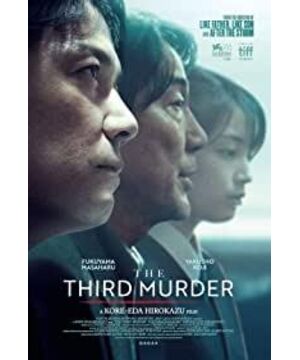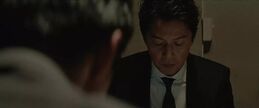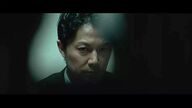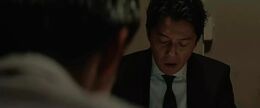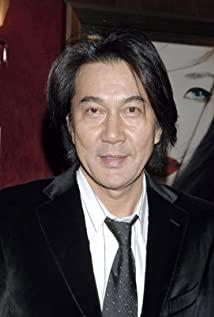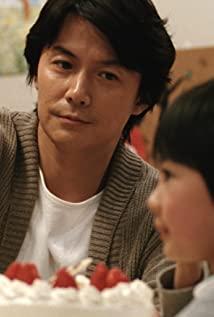A murder case with seemingly solid evidence, a lawyer who pays more attention to the results than the truth (Tomatsu Shigemori), and a criminal suspect with a strange attitude and untruthful words (Takaji Misumi), these constitute the main elements of the whole film.
The plot of the film actually revolves around two questions. First, what is the motive for the murder? 2. What does Miyu Koji want? The main line in the film is that Shigesheng Pengzhang finds the truth by stripping the cocoon and guides the process of the case, but in fact it is the pursuit of Misumi Takaji that dominates the direction of the case. And when the film ends, after these two questions have been clearly answered, the third question remains in the hearts of the audience. Why did Takaji Misumi choose this way?
The trigger for everything was the first judicial trial 30 years ago, when Misumi Takaji killed two loan sharks who came to ask for debts. As a result, the death sentence was commuted to 30 years. However, in Takaji Misumi's view, he is "a person who should not exist in the world", which buried the deepest question in Takaji Misumi's heart, who is the judiciary to judge who, and can the judiciary represent justice?
Thirty years later, Takaji Misumi killed again (judging from multiple scenes in the film, there is no doubt about this), and every aspect of the case has aggravated this doubt.
After the arrest, the procuratorate, lawyers and police all told Misumi Takaji that the plea was to avoid the death penalty, regardless of the truth. In the prosecution stage, the first time Shige Sheng Pengzhang confessed to Sanyu High Company that he pleaded guilty to murder and did not admit to robbery. The starting point was also to reduce the penalty. The second time Shige Sheng Pengzhang wanted to conspire or even cooperate to kill because of the text messages between the victim's wife and Sanyu High Company. For the point of debate, again not for justice, but for results. Until the third time, when Shigemori Tomezhang finally got to the edge of the truth, he and Misumi Takaji unexpectedly chose the same behavior of covering up the truth.
From beginning to end, Pengzhang Chongsheng never chose truth and justice. Of course, his choice was based on his position, but to a certain extent, he made such a choice because he knew that justice could be manipulated. On the contrary, Misumi Takaji chose justice by constantly changing his confessions, but this justice is not expressed through the truth, nor is it judged through justice. This justice is the justice that he thinks and pursues, and from this justice in his heart, he gets judgment and peace.
The story of the blind man touching the elephant is mentioned in the film. The truth is such an elephant, and what everyone can see is only a part of it. Justice is also such an elephant, and what everyone can decide is only a part of him, even justice is no exception. This is probably what the movie is trying to tell us.
But in fact, we have given the judiciary the power to decide life and death, but we are constantly questioning it. It is also that we are accustomed to believing that justice represents justice in the inherent social order, but doubt whether it is just or not under the impact of morality and ethics.
When I watched the movie, I thought of the famous Simpson murder case. All the motives and evidence pointed to the truth. However, due to several major mistakes by the police, the strong evidence was invalid, and the final verdict was acquittal. You see, judicial procedurality is even better than judicial impartiality.
So looking back at this question that Koji Misumi has been obsessed with all his life, we will find that "whether justice can represent justice" itself is a false proposition, because justice is never born for justice.
View more about The Third Murder reviews


